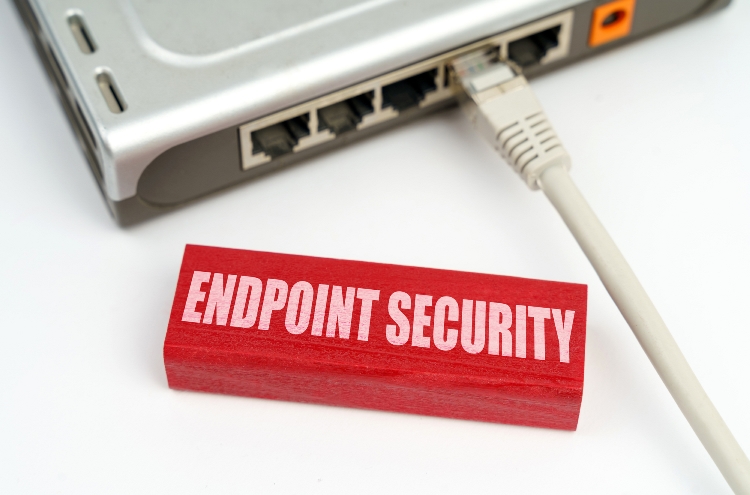What is Endpoint Security Protection?
Evolving from traditional antivirus software, endpoint security provides businesses with a more comprehensive level of protection against sophisticated malware and evolving zero-day threats.
Securing devices such as desktops, laptops, mobile devices, and more from being exploited or falling victim to cyber-attacks, integrating with SonicWall firewall, endpoint security protects the endpoints on a network or in a cloud.
With the increase in remote working and BYOD, the importance of endpoint security has also increased.
As a centrally managed security solution, endpoint security examines files, processes, and systems for suspicious and malicious activity, reporting, blocking, containing, and removing this as appropriate from your network before it becomes a huge risk.
Endpoint Security Protection
No one is immune from cyber-attacks or malware threats. In fact, it's reported that hackers will issue a new cyberattack every 39 seconds, with similar reports highlighting that 30% of data breaches that a company experiences involve malware being installed on endpoints.
Cybercriminals continuously find new ways to gain access, steal information, manipulate employees to access sensitive information, and more.
This makes the case for the importance of endpoint security. Making it the first line of defence for your business, allowing you to detect, analyse, block, and contain attacks quickly.
Working with other security technologies and integrating with SonicWall business firewall can also be your best chance at protecting your business, speeding up detection and remediation response times.
Data is your most valuable asset, and you must protect it at all costs. Because when such sensitive information falls into the wrong hands, your entire business is put at risk.
What is Endpoint Security?
Endpoint security protects workstations, servers, and other devices from malicious threats and cyber-attacks. It is required to analyse, detect, block, and contain threats before they become a risk to the business.
Endpoint - a device that connects to a network. In the growing era of technology, endpoints have evolved and expanded and can now be in the form of wearables, smart devices, voice-controlled digital assistants, as well as mobiles, desktops, and laptops.
This means every device an employee uses to connect to your business's network is at potential risk. So, you must protect all endpoints to help secure remote working and on-site.
Endpoint security looks at your complete network, not just single devices (like antivirus software), monitoring all connected endpoints from a single location. Detecting and preventing security threats as they enter the network and comparing these against threat information.
With the right endpoint solution, you can now monitor, protect, investigate, and respond to incidents more effectively and efficiently.
End point security can be on-premises or cloud-based models or a hybrid approach.
Endpoint security vs antivirus protection
Both endpoint security and antivirus software perform very different roles in the protection of your business from cyber-attacks.
For example, your antivirus software will find and remove malware or malicious threats, whereas endpoint security can identify the malware before it even enters your network.
You can also expect visibility in real-time with endpoint security, providing you with a proactive defence against future attacks.
Other key differences include:
Device coverage – antivirus software is installed on individual devices and is often updated manually. Endpoint security manages and monitors the entire network.
Advanced protection – antivirus detects and removes malware, whereas endpoint security can detect it before it even enters your network.
Admin control – endpoint security across the entire network is all managed centrally from one location.
Integration – endpoint security can be easily integrated with other security software and SonicWall firewalls.
Benefits of Endpoint Security
- It can push updates automatically.
- You can authenticate login attempts.
- Can administer policies from one location.
- You can block applications that are deemed unsafe or unauthorised through encryption.
- Employs continuous monitoring, providing you with improved visibility and a range of response options.
Types of Endpoint Protection
- Endpoint detection and response
- Endpoint protection platform
- Mobile threat defence
- Advanced threat protection
All of the above include features such as antimalware, analytics, the ability to enforce compliance policies centrally, data encryption, firewall and application control, sandbox inspections, secure remote access, and URL filtering.
SonicWall Firewalls
The right security solution depends on your business requirements. For example, how many employees do you have? Is everything on-site, in multiple locations, or remotely working?
What is device ownership? Level of business data sensitivity.
We would advise you to look for packages that include:
- Antivirus/malware protection
- Ability to detect threats across multiple endpoints.
- Proactive web security
- Support with data loss prevention
- Integrated SonicWall firewalls
- Protected email gateways
- Insider threat protection
- Centralised management options
- Full encryption.
We offer a full range of firewall and endpoint security protection, helping to keep your business safe now and in the future.



